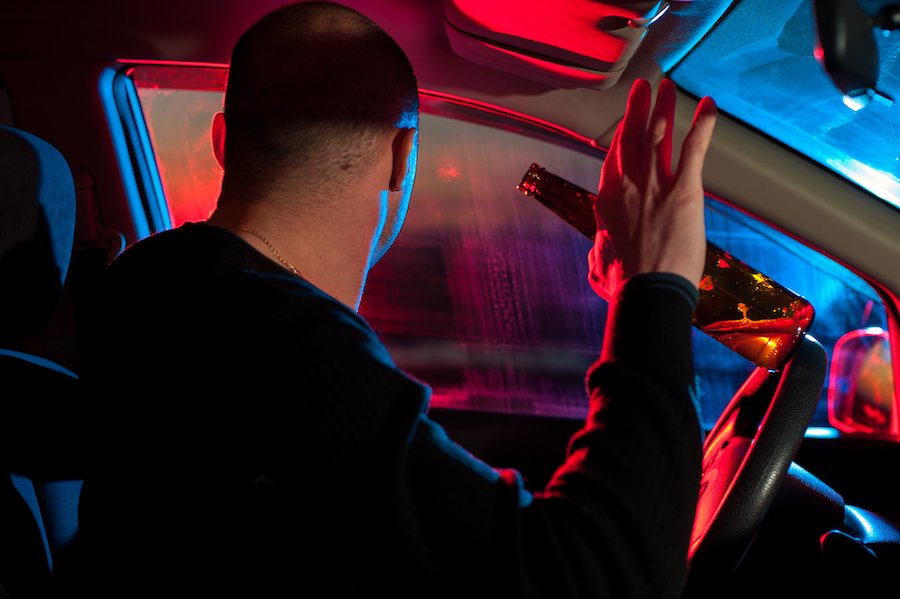Updated
A second-offense DUI within seven-year of a first DUI is a class 1 misdemeanor in Arizona. Penalties include 90 days in jail, a 1-year license revocation, at least $3,000 in fines, an alcohol and drug screening, traffic school, and using an ignition interlock device for a year. The minimum jail sentence and fines are harsher if the defendant’s blood alcohol concentration (BAC) was 0.15% or higher.
In this article, our Arizona criminal defense attorneys discuss:
- 1. What is a DUI-second?
- 2. What are the penalties for a DUI second in Arizona?
- 3. How long is the license suspension?
- 4. Can the case be dismissed?
- 5. Can a DUI get expunged?

A second DUI in Arizona is a class 1 misdemeanor.
1. What is a DUI-second?
In Arizona, a DUI-2nd is a second case in a seven-year-period of driving under the influence of drugs or alcohol. It does not matter if the previous DUI was in Arizona or another U.S. state or territory.
Drivers face DUI charges whenever their BAC was 0.08% or higher, even if they were sober. And drivers with a BAC below the legal limit can still face DUI charges if they exhibit even the slightest impairment by drugs or alcohol.1
Note that commercial drivers in a commercial vehicle can be convicted of DUI for having a BAC of only 0.04%.
Arizona law divides DUI into three categories based on the defendant’s BAC:
- DUI (a.k.a. ordinary DUI, impaired DUI, or DUI per se): 0.08% to 0.149%
- Extreme DUI: 0.15% to 0.199%
- Super Extreme DUI: 0.20% and higher2
The more “extreme” the DUI, the harsher the penalty.
2. What are the penalties for a DUI second in Arizona?
A 2nd offense DUI conviction in Arizona is a class 1 misdemeanor. It carries the following sentence:
- 1-year driver’s license suspension;
- Installation of an ignition interlock device (IID) for 1 year;
- Alcohol screening and alcohol classes;
- Traffic survival school course; and
- 30 hours of community service
The jail time and fines for DUI-seconds in Arizona turn on the defendant’s BAC:
| BAC level |
Arizona DUI-second penalties |
| DUI
(BAC of .08% to .149%) |
|
| Extreme DUI
(BAC of .15% to .199%) |
|
| Super Extreme DUI
(BAC of .20% or higher) |
|
In addition, there are various court costs and surcharges. And defendants can expect their car insurance premiums to increase as well.
Note that a second-time DUI becomes an aggravated DUI – which is a felony – if the defendant was either:
- driving on a suspended license,
- driving on the wrong way on the road, or
- driving with a minor passenger 14-years old or younger.4
A third offense DUI in a seven-year period is always a felony.3

A second-time DUI triggers a one-year driver’s license suspension in Arizona.
3. How long is the license suspension?
In Arizona, a second offense DUI results in a 1-year license revocation.5 In order to maintain driving privileges, defendants must win both the DUI criminal case as well as the MVD hearing with the Arizona Motor Vehicles Department (MVD). Winning only one of these cases will still trigger a suspension.
Like a criminal trial, MVD hearings allow the defense to present evidence and witnesses. But whereas criminal trials require prosecutors to prove guilt beyond a reasonable doubt, the burden of proof in the MVD is much lower: By a preponderance of the evidence. This means that the MVD can suspend a defendant’s license if it finds that it is “more likely than not” that the defendant had an illegal BAC or was impaired.6
Note that a second-time commercial DUI results in a life-long suspension of the CDL.7
4. Can the case be dismissed?
Depending on the circumstances, the following DUI defenses may result in a charge reduction or a dismissal:
- The defendant was just a passenger, and someone else was driving.
- The initial traffic stop was made without a reasonable suspicion for a crime.
- The setting was improper to conduct field sobriety tests (such as an uneven sidewalk or uncomfortable shoes).
- Law enforcement had insufficient probable cause to effectuate an arrest.
- The police did not administer the breath test correctly.
- The breathalyzer was defective and returned incorrect blood alcohol content readings.
- The lab techs who handled the blood tests let their certifications lapse.
- The high BAC results were due to an underlying medical condition, such as acid reflux.
If the defense attorney can show that the defendant did not have a DUI in the last seven years, then the charge should be lessened from a second offense DUI to a first offense DUI.
5. Can a DUI get expunged?
No, Arizona law does not permit record expungements or seals at all. However, defendants may ask the judge to set aside their DUI case. This shows that the defendant completed all the requirements and the case is over. Potential employers are more likely to hire applicants whose past cases have been set aside.8

Call our DUI law firm for legal advice and to discuss creating an attorney-client relationship. Our DUI attorneys offer free consultations on drunk driving cases.
Contact our experienced attorneys if you’re facing felony or misdemeanor DUI / DWI charges. Our DUI lawyers serve clients throughout Arizona, including Phoenix, Scottsdale, Gilbert, and more. We can meet in our law office or over the phone.
Legal References
- ARS 28-1381; see also State v. Clark, (Ariz. Ct. App. 2020) 472 P.3d 544.
- ARS 28-1382.
- ARS 28-1381; ARS 28-1382.
- ARS 28-1381; ARS 28-1382.
- ARS 28-1385.
- See Wieseler v. Prins, (Ariz. Ct. App. 1990) 167 Ariz. 223, 805 P.2d 1044, 66 Ariz. Adv. Rep. 40.
- 49 C.F.R. § 383.51.
- ARS 13-905.
